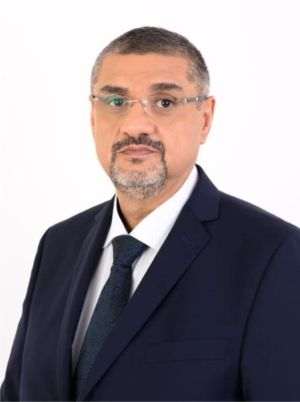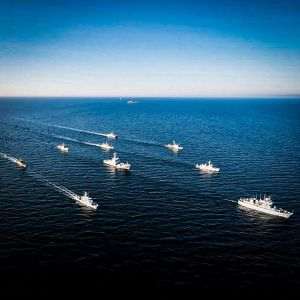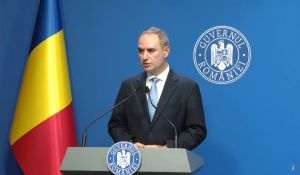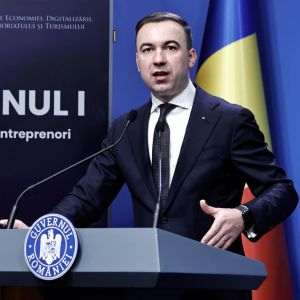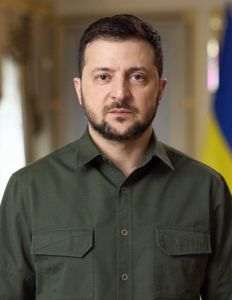Reporter: Your Excellency, the South African Embassy was reopened in Bucharest five years ago. How many visas for South Africa have the Romanians requested since 2008?
Pieter A. Swanepoel: Romania and South Africa have not had any diplomatic representation in the beginning of the 90s, when we opened an embassy in Romania, and you, in turn, have opened an embassy in Pretoria and a consulate in Cape Town.
But, at the end of the 90s, our priority was to open as many embassies as possible on the territory of Africa and for that reason, we have been forced to close a series of embassies, including the one in Bucharest, strictly for economic reasons.
Pieter A. Swanepoel: Romania has kept its embassy open, and the Romanian authorities have insistently asked us to reopen it, which we did five years ago. It has been a true challenge to reopen the embassy in Bucharest, and now we are fully functional again.
All the activity before the closing of the Embassy at the end of the 90s has been and we had to start from scratch. As for the visas, we issue on average 200 visas a month, compared to 100/month, what we used to issue in 2008. While our Romanian embassy was closed, Romanians had to obtain visas from Budapest, which made things very difficult.
The World Football Championship of 2010 has helped a lot to the promotion of South Africa in the world, and in Romania as well. Furthermore, I have the impression that Romanians now prefer to make longer flights than they would have a done a few years ago. People who traveled to Brazil or Thailand now choose to give South Africa a shot.
Reporter: Lately, South Africa is being presented as a rather dangerous tourist destination.
Pieter A. Swanepoel: We are just talking about a matter of perception. It is true that we have a high rate of unemployment in Africa, which has led to a rise in criminality. But this phenomenon is confined to certain areas. For example, the feedback we get from tourists, as well as police statistics show that, for instance, Capetown is a safe place. I can tell that the high level of criminality tends to be an element that intimidates tourists. And the authorities are aware of this fact. During the Football World Cup, we have appointed approximately 20,000 new cops, which have remained in place since then. The statistics are saying that this has heavily helped fight crime. We have almost 10 million tourists that visit us. South Africa has become a major tourist attraction, especially following the Football World Cup.
Reporter: South Africa is part of the BRICS.
Pieter A. Swanepoel: We are thrilled to have been invited to join BRICS (Brazil, Russia, India, China, South Africa). I think that the founding members of BRICS have felt the need to have a presence in Africa, as they view our country as a gateway to the entire region. South Africa has the biggest and most developed economy on the continent and the 26th largest economy in the world. It is obvious that the other BRICS countries have far bigger and more developed economies, but attracting South Africa will allow the BRICS countries to more easily enter the African market, which has 1 billion people, especially youngsters, which are a huge consumer market. At the end of March, South Africa will host the first BRICS summit on the African continent. It is very important for us that we are members of BRICS, we are recognized as an important emerging economy.
The export of raw materials has helped the South African economy very much. We now have to go to the next step, to create value to add to the commodities. We need to create jobs in South Africa, to produce.
Reporter: What are the economic relations between South Africa and Romania? You've traveled a lot in Romania.
Pieter A. Swanepoel: Personally, I have been in your country for four years. I have traveled to most of Romania's regions, looking for opportunities for South-African businesses in Romania. There is no major Romanian investment in South Africa, but I am very proud to say that when it comes to South Africa, we have invested over 1 billion Euros in Romania.
I have to mention that these are not just direct investments, some of them are indirect investments. For example, the biggest indirect investment which we have in Romania is NEPI - New Europe Property Investments. NEPI's capital comes from the Johannesburg and London Stock Exchanges, and the management and the majority of the capital is South-African, even though it is registered in the Isle of Man for fiscal reasons. In the Romanian records, this investment will not be recorded as coming from South Africa, but from the Isle of Man.
But we do have other companies which have invested on the Romanian market directly, one example in that regard is the African group Naspers, which has acquired 80% of eMAG.
Also, in the beginning of last year, a company in South Africa - Metair Investments - has bought the Romanian battery maker Rombat. Even though it has paid almost 50 million Euros, Metair Investments has invested about 25 million Euros in upgrading the Romanian company.
As for Ursus, which is owned by South-African company SAB Miller, I know that over the last two years, the market has been difficult for them, because beer sales for the entire market have fallen. The people of Ursus have reduced the activity of the plant in Cluj, but they have found a solution, and they have invested money and they have created a micro-brewery. Businesses in South Africa are investing on the Romanian market because you are part of the European Union, but they would not invest unless they were able to turn out a profit.
Pieter A. Swanepoel: Romanians have a great talent for precision disciplines, they are great inventors, but they are not very good at promoting themselves.
Once Romanians invent a product, they don't know exactly how to launch it on the international markets, but on the other hand South-Africans are very good at it, they can grasp the opportunity.
I will give you the example of Raluca Van Staden, a Romanian, who is married to a South African, who has invented a new type of sensor, which can be used to detect cancer directly using blood samples, in less than six minutes. In 2010, Raluca Van Staden won the Golden Trophy of the World Organization for Intellectual Property for the Best Female Inventor, at the International Inventions Fair in Geneva. For me, this invention is unique.
Part of the research was done in South-Africa, but Raluca Van Staden, as well as her husband have been living here for ten years, so most of the work on their invention has been done in Romania. The problem is that they can't go to the next step, of patenting and selling it. We South-Africans have the ability to exploit the national, as well as international growth opportunities as well. For example, SAB Miller has started off as a small brewery and now it is the second largest in the world.
Another example is that of the African mining companies which play a very important part in the world, especially in Latin America.
Reporter: When it comes to mining, Romania also has major resources, but the African companies didn't come here, and they left the door open for Canadians.
Pieter A. Swanepoel: Mining is a difficult activity. I don't think that we should be talking about the involvement of South Africa in actual mining in Romania, but we should instead see how the South-African technology could help the Romanian mining industry. The South-African technology is unique, and it can currently dig for gold deposits at 4 km of depth. It's like going to outer space. Nobody else digs that deep. I don't necessarily see a South-African mining company coming over here to buy a stake, because the Canadians are already here, for the most part. But South Africa can help with the next stage - technology.
Reporter: Are these technologies environmentally friendly?
Pieter A. Swanepoel: Yes, we are talking about deep mining. Sure, we also have to deal with issues like storing what gets mined, with what needs to be thrown away etc.
I do think however, that most environmentalists prefer mining at 4 km of depth, compared to open mining, because you are digging, you don't open path which you then have to fill, to plant vegetation etc.
Reporter: Is this technology expensive?
Pieter A. Swanepoel: It is true that it is expensive. But the price of gold is at a reasonable level again, therefore, our companies can once again make a profit by digging at that depth, but we have also had periods when the price of gold was not high enough for them to make anything.
Reporter: Why does South Africa send diamonds to other countries and it doesn't manufacture jewelry itself?
Pieter A. Swanepoel: We are trying to do that, but cutting diamonds is an art, you can't learn it over night, but from one generation to the next.
You don't just become a diamond cutter in one week, a month or a year, it's something that grows with the experience you accumulate. We have cut diamonds in South Africa as well, but it is not the quality we need. A country such as India is a massive importer of diamonds, we export a lot more over there than we do to Brussels and Israel. Because the Indians have begun developing this form of art, it is a talent which you have to work hard to develop.
Reporter: What are the main sectors which South Africa is investing in, in Romania?
Pieter A. Swanepoel: South-African investment fund NEPI has grown a lot over the last two years, in a very difficult European market, correlated with the effects of the economic crisis.
The NEPI business is different compared to others. NEPI doesn't just erect the building, the shopping center or the office building and then just leave it be, it actually gets involved in the management of the real estate investments which they have.
When they have decided to build those shopping centers, for instance, the people of NEPI also had certain requirements - closed playground for children, cinemas, family restaurants, not very expensive. You can't sell expensive brands in a small province city. Moreover, they have chosen Carrefour as their partner, which owns the main store. Furthermore, the people of NEPI have a very good marketing strategy. I think that Martin Slabbert (ed. note: the CEO of NEPI), who has come here as an employee of an accounting firm, has seen the investment opportunities on the Romanian market, but I can tell you that he would be able to find such investments in Bulgaria, or in Ukraine. He would definitely see a similar success over there as well. The people of NEPI have felt the needs of the community and through their investments, and they have answered them. South-Africans have this ability.
Reporter: But aren't South African investors interested in Romanian agriculture?
Pieter A. Swanepoel: South-African investors are not interested in acquiring land in Romania, but we do have the ability to transfer know how. It is true that the soil is very good for agriculture, but the properties which are available are small.
I will give you another story - Răzvan Macici, a young Romanian who grew up in Iaşi. Both him, and the members of his family were experts in the late harvest of grapes which allowed obtaining a sweet wine. In the beginning of the 90s, Răzvan Macici was selected by a company in South Africa for the late harvests. Now, Răzvan Macici is a cellar master (ed. note: a person that supervises the production of wine in a winery), the boss of 5-6 wine masters who work for him. On the occasion of the World Cup, Răzvan Macici has produced the official wine of the competition. Some time ago, Murfatlar has asked him to produce a premium wine for them. He currently works in Romania, as well as in South Africa. And he can work in both countries because our harvest season - our autumn - coincides with your spring. Another example is that of a South-African who lives in Oradea and is a prosthetics maker. No one in Romania is qualified to do what he does. He has sold over 3,000 prostheses so far. The Romanian authorities pay around 1,000 lei for a prosthesis, but it generally costs approximately 8,000-10,000 lei. In order to make up the difference, the South-African from Oradea cooperates with NGOs from Scandinavia. He has now opened a clinic in Bucharest as well.
Reporter: What is your take on the relationship with the Romanian authorities? There is the perception among diplomats, that the Romanian authorities aren't doing anything to bring investors to Romania.
Pieter A. Swanepoel: Ursus (which belongs to SAB Miller) is the company which has been present on the Romanian market the longest, around 6 years, NEPI has come six years ago, the buyer of Rombat - last year, Naspers, two years ago. Not one of them came to the Romanian authorities or to our embassy to announce their intention to invest. That's how South African companies operate. If they want to do business, South-African investors don't ask for help, they actually assess the situation, the opportunity, through their own forces, and they act.
In Romania it's exactly the opposite. When Romanians want to invest in South Africa, they feel compelled to come to the Embassy, to talk to us. Of course, I like to help them, I like talking to people if they are interested, but they don't have to approach the South-African embassy. If you have a contact in South-Africa, a partner whom to work with, then do the deal, you don't have to talk to us.
Reporter: What is the relationship between South-Africa and Zimbabwe?
Pieter A. Swanepoel: The South-African president, Jacob Zuma, is in charge of the South-African Development Community, a sub-African, regional group, which is in charge of providing assistance in the process which was agreed in Zimbabwe, a government of national unity. On March 16th, the referendum for the new elections was held in Zimbabwe, for the approval of the new Constitution, and this will allow the new elections to be held. Things in Zimbabwe are going a lot better since the new government of national unity has set itself up, the inflation of 10,000% has gone down a bit. But it is very important to have fair elections and they have announced that they need the help of the international community, in order to hold the referendum and the elections. South Africa has granted them a small financial aid, but it is also interesting that the countries in the Commonwealth and the EU have decided, at the latest reunion of the European Council, to raise certain restrictions for Zimbabwe. Recently, Australia has done the same. The international community wants to see that the situation is stabilizing in Zimbabwe. And I think that we are going in the right direction. It is a country that needs help and in the end that help can't come from abroad, the Zimbabweans need to help themselves. At least, they need to create the political environment and I think that a lot of progress has been made, especially behind the scenes. Things are looking much better than before.
"We are currently issuing about 200 visas a month, compared to the 100/month we used to issue in 2008".
•
"Raluca Van Staden has invented a new type of sensor, which can be used to detect cancer, directly out of the blood sample, in less than six minutes".
•
"During the World Football Cup, approximately 20,000 new policemen were appointed, which have remained in place since then. Statistics say that this thing has helped a lot with bringing down criminality".
•
"South-African investment fund NEPI has developed a lot over the last two years, on a very difficult real estate market, correlated with the effects of the economic crisis".
•
"You don't just become a diamond cutter in a month or a year, it is something that grows with the experience you accumulate".
•
"Romanian Răzvan Macici has produced the official wine of the World Football Championship in South Africa".





